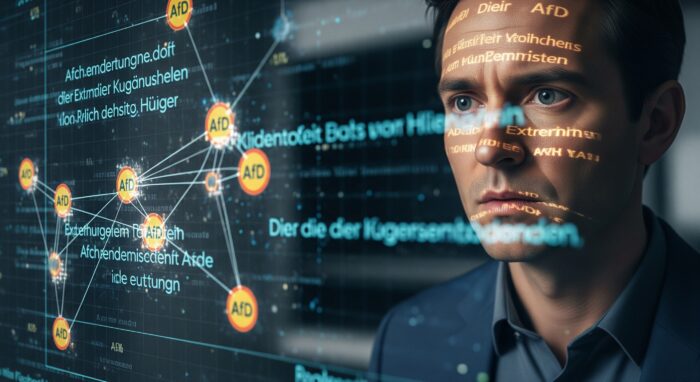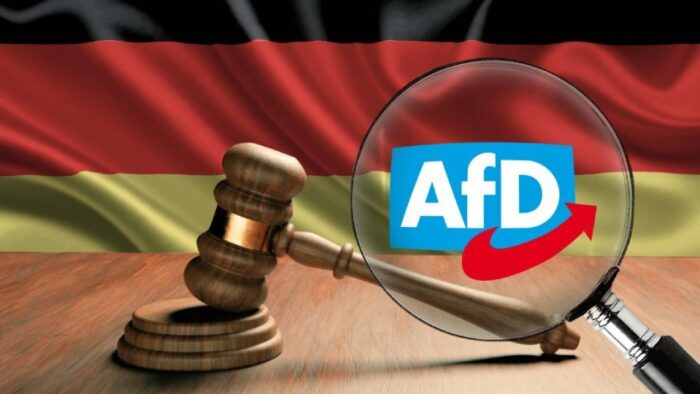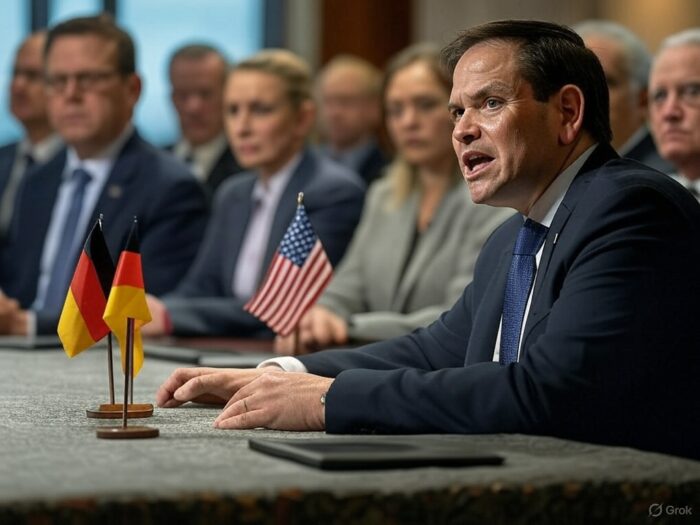The expansion of Germany’s far-right AfD party has gained significant momentum as the party attempts to broaden its appeal beyond its traditional Eastern strongholds. On 22 June 2025, The New York Times reported that the party, recently designated as extremist by Germany’s domestic intelligence service, is achieving notable success in Western industrial cities like Duisburg by tailoring its anti-immigrant message to local economic concerns. The article begins:
It was a warm spring day in Duisburg, a rusty industrial hub in Western Germany, and Alan Imamura, a member of the City Council, was chatting with constituents in a shop-lined pedestrian mall on the city’s impoverished north side. Until recently, Mr. Imamura said, he was not welcome in places like this. That is because he is a leading local figure in the Alternative for Germany, known as the AfD, a far-right party whose national organization was recently declared an extremist group by the country’s domestic intelligence service. Much of the AfD’s support comes from the former East Germany. But in recent years, it has developed a beachhead in parts of Western Germany. During February’s federal elections, several neighborhoods in Mr. Imamura’s district gave the AfD some of its best results in the country, coming close to 40 percent of the vote.
Read more: https://www.nytimes.com/2025/06/22/world/europe/germany-afd.html [paywall]
Key Points
- The AfD achieved nearly 40 percent support in some Duisburg neighborhoods during the February federal elections, marking significant gains in the West.
- Germany’s domestic intelligence service designated the AfD as extremist, citing an “entrenched xenophobic mindset” in party leadership structures.
- The party targets post-industrial decline areas, where unemployment reaches 13.4 percent, compared to Germany’s national average of 3.5 percent.
- AfD strategically courts immigrant voters with Turkish-language content, achieving 20 percent support among voters with migration backgrounds nationwide
Germany’s AfD & the Global National Conservative Alliance
The Alternative für Germany (AfD), Germany’s national conservative party, has become a focal point of both domestic and transnational political controversy, as its extremist designation by German intelligence agencies raises fundamental questions about the limits of democratic opposition and the role of state surveillance in a liberal democracy. The party’s rapid growth and radicalization, marked by a surge in extremist membership and increasingly xenophobic rhetoric, have not only triggered constitutional and diplomatic crises but also positioned the AfD as a linchpin within the Global National Conservative Alliance (GNCA), which seeks to unite right-wing and far-right movements across Europe and beyond.
This alliance is characterized by shared ideological commitments to national sovereignty, anti-globalism, and cultural conservatism, as well as operational linkages through participation in international far-right events and collaboration with figures such as Hungary’s Viktor Orbán and France’s Marine Le Pen. The AfD’s influence is further amplified by external actors, particularly Russia, which has actively cultivated ties with AfD politicians to propagate anti-EU and anti-immigrant narratives, leveraging disinformation campaigns and financial incentives to destabilize European political systems. Despite the contradictions between the AfD’s professed values and the realities of authoritarian governance abroad, its integration into the GNCA underscores the party’s transformation from a national protest movement into a key node in a transnational network that challenges liberal democratic norms and institutions.
External References:
Disclaimer
The Global Influence Operations Report (GIOR) employs AI throughout the posting process, including generating summaries of news items, the introduction, key points, and often the “context” section. We recommend verifying all information before use. Additionally, images are AI-generated and intended solely for illustrative purposes. While they represent the events or individuals discussed, they should not be interpreted as real-world photography.











